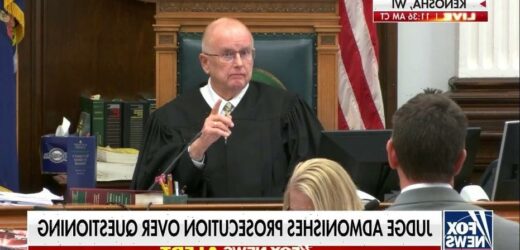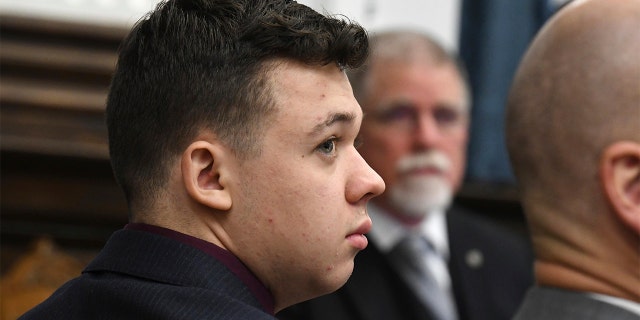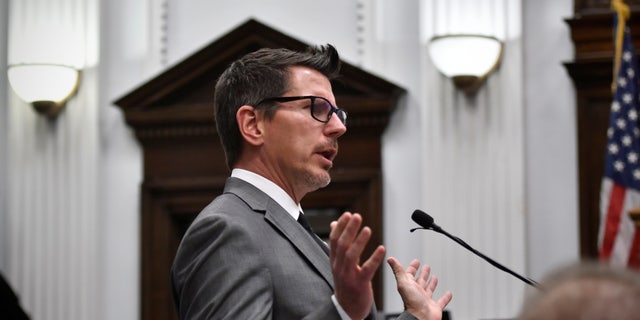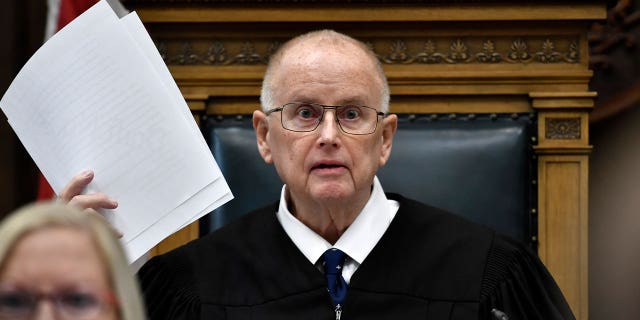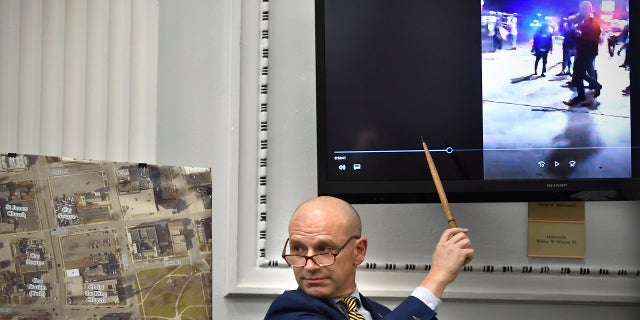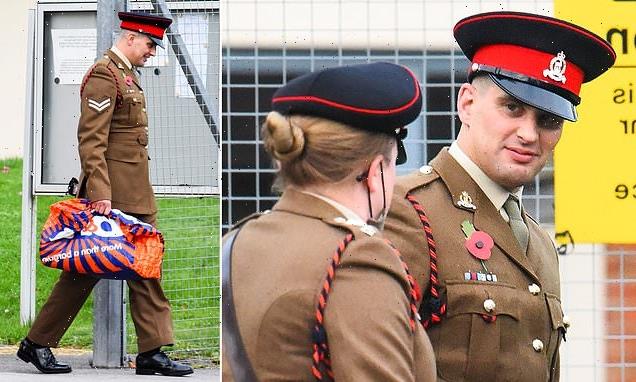Rittenhouse trial: Judge scolds prosecutor over cross-examination in heated exchange
Circuit Court Judge Bruce E. Schroeder raises his voice to the prosecution while reprimanding them over their line of questioning pertaining to Kyle Rittenhouse’s gun use and his knowledge of the law as it pertained to his use of the gun.
Prosecutor Thomas Binger was “very close” to violating the “golden rule” of law during the Kyle Rittenhouse trial in Kenosha, Wisconsin, according to criminal defense attorney Ajay Pallegar.
The golden rule is when a prosecutor or other party in a criminal defense makes a statement of an emotional nature to the jury, such as: “Put yourself in the victim’s shoes.”
“That’s a golden rule violation because, basically, you lose the objectivity with the actual facts of the case, and the jurors make things more personal than they really should be,” Pallegar, a Tampa-based criminal defense attorney at Pallegar Law, told Fox News. “That, by default, is a total violation and the first thing you learn in law school. That’s a mistrial.”
Dr. John Black testifies as Kyle Rittenhouse watches during his trial at the Kenosha County Courthouse in Kenosha, Wis., on Thursday, Nov. 11, 2021 (Mark Hertzberg /Pool Photo via AP)
Assistant District Attorney Thomas Binger asked Rittenhouse, 18, during cross-examination on Nov. 10 why he was talking about the shootings now for the first time instead of directly after they occurred in August of 2020, drawing the ire of Judge Bruce Schroeder.
Pallegar added that while he does not think Binger outright broke the golden rule because he did not make an emotional appeal to jurors and because the judge did not immediately declare a mistrial, the prosecutor was “very close” to doing so by asking Rittenhouse why he chose to remain silent, in violation of his constitutional rights.
Binger did so “by trying to get into statements that” Rittenhouse did not make once he was informed of “his right to remain silent after he was arrested,” Pallegar said.
Prosecutors typically don’t question why a defendant has remained silent because defendants legally aren’t required to say anything.
Assistant District Attorney Thomas Binger gives his closing argument during Kyle Rittenhouse’s trial at Kenosha County Courthouse, in Kenosha, Wisconsin, U.S., November 15, 2021. (Sean Krajacic/Pool via REUTERS)
“In this case, it seems like the prosecutor was trying to introduce character evidence,” the criminal defense attorney explained. “What happened when Mr. Rittenhouse sat down was: He started talking, and the prosecutor was questioning him on post-arrest admissions and things he did not say or did not communicate to law enforcement, which is a violation of his constitutional rights.”
Rittenhouse’s attorney accused Binger of commenting on his client’s right to remain silent about the case, to which Binger responded that the defendant was tailoring his testimony to details already introduced in court.
Judge Schroeder also said noted that it is a “grave constitutional violation for” the prosecution “to talk about the defendant’s silence,” emphasizing that the law has been “in this country for 40 years, 50 years.”
“You’re right on the borderline. And you may be over. But it better stop,” he said.
Phil Turner, a Chicago-based defense attorney and former federal prosecutor, agreed.
Judge Bruce Schroeder speaks to issues on jury instruction during Kyle Rittenhouse’s trial at the Kenosha County Courthouse on November 15, 2021 in Kenosha, Wisconsin. (Photo by Sean Krajacic-Pool/Getty Images)
“You can never, never comment on the fact that the defendant did not say something,” Turner told The Associated Press. “He or she has a Fifth Amendment right not to incriminate themselves. You don’t go near it as a prosecutor. Never.”
Binger’s questioning referenced a Washington Post article from November of 2020 in which the 18-year-old told the Washington, D.C.,-based newspaper in an interview that he felt he “had to protect” himself.
“I would have died that night if I didn’t,” he told the Post at the time.
Twelve jurors on Tuesday began deliberations in the Rittenhouse trial after hearing final arguments on Monday.
Rittenhouse is facing charges of first-degree reckless homicide, first-degree intentional homicide, attempted first-degree intentional homicide and two counts of first-degree recklessly endangering safety after he fatally shot two people and injured a third person during the second night of civil unrest in Kenosha on Aug. 25, 2020.
Corey Chirafisi, an attorney for Kyle Rittenhouse, points to a video while questioning Koerri Washington during the trial at the Kenosha County Courthouse in Kenosha, Wis., on Wednesday, Nov. 3, 2021. (Sean Krajacic/The Kenosha News via AP, Pool)
If found guilty and convicted of first-degree intentional homicide, Rittenhouse will face a mandatory life sentence.
The judge tossed one charge of possession of a dangerous weapon by a person under 18 on Monday after Rittenhouse’s defense team argued that a subsection of the law concerning short-barreled rifles was grounds for dismissal.
His attorneys are arguing that the then-17-year-old was acting in self-defense after being attacked from behind when he shot Gaige Grosskreutz, 27, as well as deceased Joseph Rosenbaum, 36, and Anthony Huber, 26 in the riots following the police shooting of a 29-year-old Black man, Jacob Blake.
The Associated Press contributed to this report.
Source: Read Full Article
